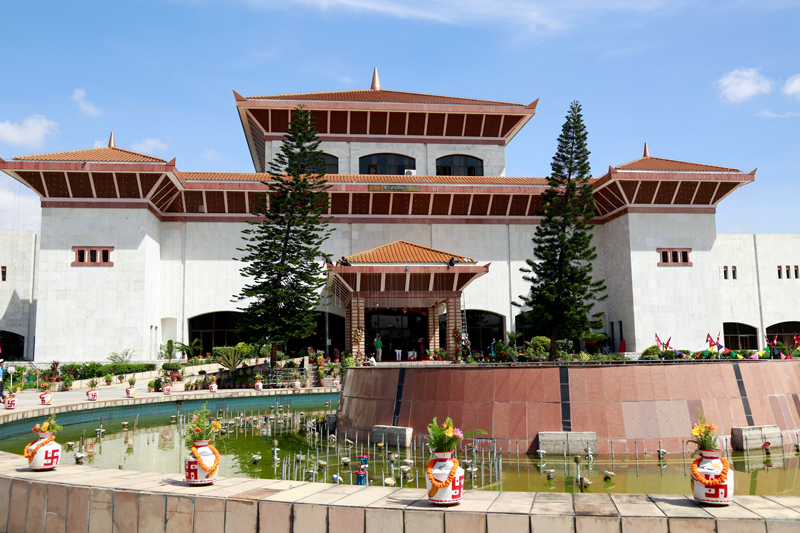Transport management bill envisages sweeping reforms
Kathmandu, August 24
The Kathmandu Valley Public Transport Management Authority Bill registered in the National Assembly stipulates a provision of easy, accessible, passenger-friendly, cost-effective and safe public transport by maintaining balance between demand and supply of public transport service.
The bill envisages establishment of Public Transport Authority to regulate public transport service in the valley. The bill will come into effect from the 91st day of its authentication by the president after its passage from the Upper House. According to the bill, it shall be effective for a period of five years from the date of its commencement.
The bill has categorised bus, taxi, light rail, mono rail, rail, cable car, sky rail and ride sharing that provide public service as means of public transport, but these vehicles should be registered with the authority under existing laws.
“The authority shall be established to make the mobility of passengers convenient, easy, accessible, reliable, cost-effective and safe in the valley,” Section 3 of the bill states. The authority shall be an autonomous body.
The functions, duties and powers of the authority include drafting policies, plans and strategies related to public transport, operating and managing public transport, developing integrated transport system appropriate to the valley, introducing and implementing cashless electronic fare system, developing real-time transport service information system, managing public transport keeping in mind the interest of passengers, determining public transport service standard and developing format of passenger tickets. Besides, the authority will also be responsible for allocating bus stops, passenger waiting sheds and parking areas, fixing fare rate and making arrangements of toilets for passengers in and around bus stops.
Similarly, the authority will have the power to demolish structures built by encroaching roads. It will have to coordinate with the central, provincial and local governments for effective management of public transport, designate one-way and two-way traffic routes and carry out monitoring and evaluation of public transport service in the valley.
According to Section 6 of the bill, the authority shall develop and carry out integrated transport system in coordination with the concerned agencies. Likewise, there will be a 17-member Kathmandu Valley Public Transport Council led by the mayor of Kathmandu Metropolitan City to oversee and manage overall works of the authority.
The council consists of mayors of Lalitpur Metropolitan City and Bhaktapur Municipality, representatives from the Department of Transport Management, Ministry of Physical Infrastructure and Transport, traffic police, consumer rights organisations, transport experts and transport entrepreneurs, among others, as members.
The federal government shall appoint a chief executive officer to carry out daily business of the authority. The bill said a person having obtained master’s degree in engineering, management or law from a university recognised by the government and having at least 10 years of work experience in the concerned area would be eligible to be appointed as the CEO.
There shall be a three- member selection committee to recommend the name of the CEO to the government. The age limit of the CEO is between 35 and 60 years.
“The term of office of the CEO shall be five years. However, the government may remove him or her from the post at anytime if his or her performance is not found satisfactory,” it reads.
The bill also stipulates a provision of imposing a fine ranging from Rs 1,000 to Rs 5,000 on any person who doesn’t pay or refuses to pay transport fare, charges exorbitant fare, misbehaves with passengers, threatens driver or conductor and litters public vehicles or throws out rubbish from moving vehicles.






